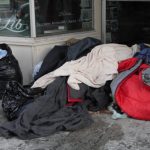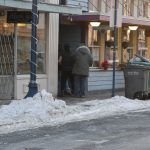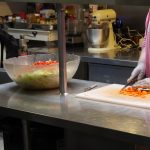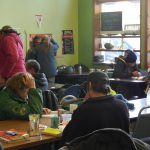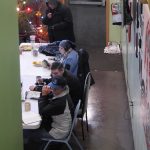It’s cold in Juneau. Earlier this month, the city saw one its heaviest snowfalls in at least a couple of years and, according to the National Weather Service, temperatures ranged between the teens and the mid-20s.
Karli Phillips was sleeping outside.
“Oh my gosh, so that storm, we were actually sleeping way under a dock and it just got drenched,” Phillips said. “This is like 3, 4 o’clock in the morning. We’re soaking wet, shivering and everything (was) just gushing water.”
Phillips is homeless and she regularly comes to the Glory Hole, one of Juneau’s few homeless shelters, for food and to get warm. She said that night she didn’t even go to sleep.
“So, I ended up just shivering in a doorway under some sheets I found,” Phillips said. “I feel bad because I think I took them from somebody but, I didn’t sleep that night because I was afraid I would die.”
Winter months are an especially dangerous time for Juneau’s homeless population.
Rose Lawhorne said if you’re sleeping outside on a night like Phillips just described, dying isn’t far-fetched.
“Weather and temperatures down around zero or in the teens like we’ve had them, or with lots of snow, or wind … even damp clothes really contributes to life-threatening hypothermia,” Lawhorne explained.
Lawhorne is a nurse and supervisor in the Emergency Department at Bartlett Regional Hospital. She said during winter, homeless people can get hit hard.
“More affected, colder, more illness during the winter months,” Lawhorne said. “We’ll start seeing them multiple times in a day, hungry and cold just looking for a way to get out – out of the elements.”
Lawhorne doesn’t know how many people come into the ER for exposure because those cases aren’t always captured in the hospital’s records.
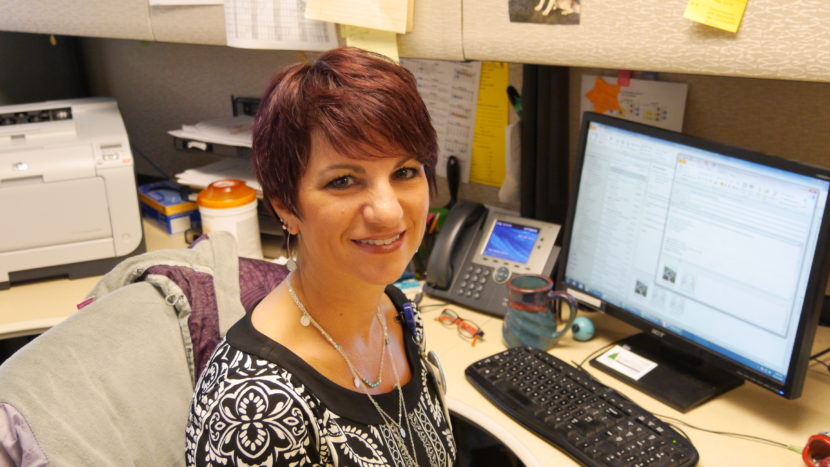
“But what I can tell you is we get many patients every day who are brought to us by either Rainforest Recovery,” Lawhorne said. “They walk in themselves, they’re brought by friends or family who are concerned, or JPD brings them to us and that is multiple times per day,”
Lawhorne said the range in conditions is huge. Some people are just cold and hungry and some are literally freezing to death.
At the Glory Hole, Executive Director Mariya Lovishchuk said the shelter has 40 beds for overnighters and during the winter they’re usually over capacity.
“We don’t turn anybody away for the lack of beds,” Lovishchuk said. “So last night we had 46 people sleeping here, so if we don’t have beds we put people on the floor.”
Lovishchuk said they give breathalyzer tests every night so people who have a blood alcohol level over 0.1 aren’t allowed in that night. People can also be suspended for longer periods.
“When people commit violent offenses or exhibit behavior that is really frightening toward other patrons or staff, they do get suspended from here,” Lovishchuk said. “I think we have two or three people who cannot get any services here.”
Lovishchuk said the Glory Hole is the only short-term shelter that takes men, women and children in Juneau, so unless suspended people and people who choose not to sleep in the dorms have somewhere else to go, they’ll end up outside. Phillips chooses not to sleep in the shelter.
“I actually haven’t gotten sick from sleeping outside. I’ve gotten sick from sleeping in here,” Phillips said.
Phillips claimed the dorms’ air quality is poor and they get overcrowded.
“People don’t regularly bathe or wash themselves,” Phillips said.
Another person said they didn’t sleep in the shelter because they kept getting into fights and being outside was easier even though it’s clearly dangerous. Phillips and others said when they’re outside, they have to wear a lot of layers and sleep under multiple blankets, sleeping bags and comforters – anything to stay warm.
Recently there was a rumor that a homeless man died sleeping on the street. An officer in the Juneau Police Department has said it’s just a rumor. Lovishchuk said she spent three hours trying to confirm it and now also thinks it’s just a rumor, but she said it definitely could happen.
Quinton Chandler is a reporter at KTOO in Juneau.

